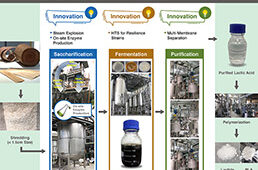MARIKANA, South Africa (AP) — Striking platinum miners in South Africa have accepted an agreement for higher wages with London-registered Lonmin PLC and plan to return to work Thursday, a mediator said of the bloody strike that lasted nearly six weeks and pulled in gold and chrome miners.
The deal reached Tuesday includes a 22 percent pay increase and a one-off payment of 2,000 rand ($250) to help cover the no-work, no-pay stoppage, according to Bishop Joe Seoka, a member of the negotiating team and head of the South African Council of Churches.
The strike that has hurt South Africa’s vital mining sector began Aug. 10 and was marked by violence in which 45 people were killed. On Aug. 16 police opened fire on demonstrating strikers, killing 34 and wounding 78 in a display of state violence that shocked the nation.
About 5,000 strikers gathered in a stadium to listen to the deal and cheered and sang when they finally accepted the offer. They then formed a line and danced out of the stadium.
Seoka said he will go back to the negotiations with Lonmin management to finalize the deal Tuesday night.
“You have won as workers!” Seoka told the crowd. He said there will be further negotiations in October where they can discuss a further increase.
One worker held up a hand inscribed in black ink with the phrase “Mission Accomplished.”
The strike highlighted poor wages and living and working conditions for most South African workers, the widening gap between rich and poor that makes the country the most unequal nation on Earth, and raised questions about President Jacob Zuma’s leadership just as he prepares for a crucial governing party congress in December that will decide whether he gets another term as leader of Africa’s richest economy.
Zuma said Monday that strikes have cost the country more than $500 million this year.
The Lonmin workers were the first to strike and in recent weeks seven other mines had work stoppages, including six platinum mines, one gold and one chrome mine.




